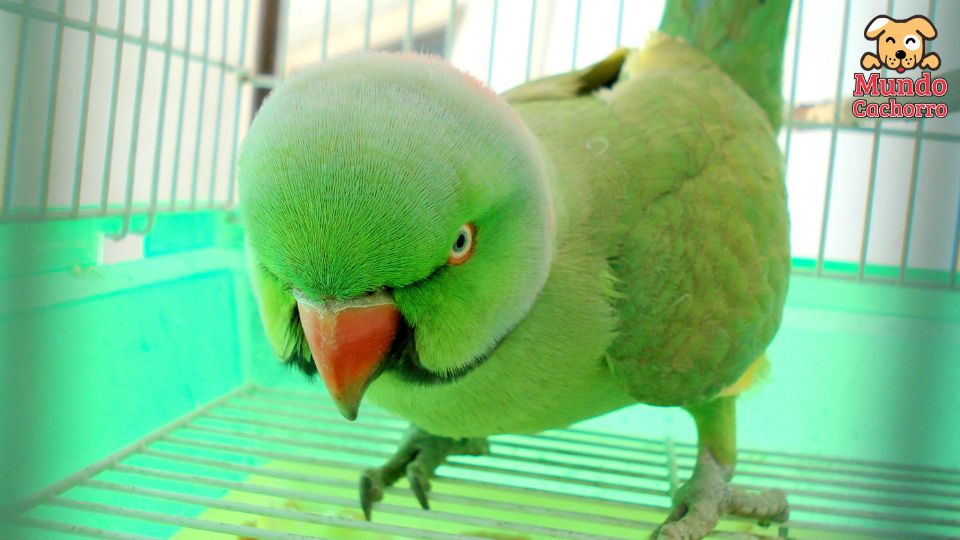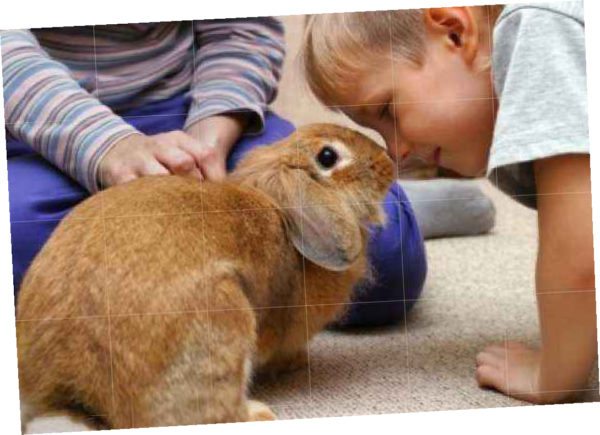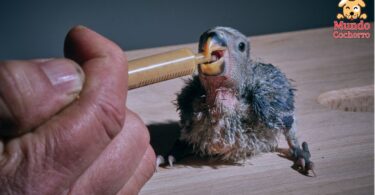When a parrot, a pet known for its intelligence and sociability, shows signs of aggression, it can be disconcerting and worrying for owners. However, it is important to understand that aggression in parrots can have a variety of causes and, in many cases, can be successfully addressed with the right approach. In this article, we will explore the possible reasons behind why a parrot might be aggressive and what steps can be taken to address this problematic behavior.
Indice

Causes of an aggressive parrot
Aggression in parrots can manifest itself in various forms, such as biting, aggressive vocalizations, threatening postures or even attacks on other animals or people in the home. These behaviors can have several underlying causes such as fear, frustration, boredom and even health problems.
An aggressive parrot may be because it feels threatened or insecure in its environment. This may be due to sudden changes in the home, the presence of strangers or even past traumatic experiences.
How to teach your parrot to talk
Parrots are very intelligent and active creatures that need mental and physical stimulation to stay healthy and happy. Lack of environmental enrichment, play or social interaction can lead to frustration and ultimately aggressive behavior.
Parrots can also become aggressive to protect their territory or personal space. This may be especially true in parrots that have not been properly socialized or have a history of dominance in their environment. In addition, some physical illnesses or ailments can cause pain or discomfort in parrots, which can manifest in aggressive behavior as a form of defense.
Research reveals that parrots learn local dialects
Finally, at certain stages of their lives, such as sexual maturity, parrots may experience hormonal changes that make them more prone to aggressive behaviors, such as protecting a mate or attempting to establish hierarchies within their environment.
Addressing aggression
If your parrot is showing signs of aggression, it is important to address the problem proactively and sympathetically. Here are some steps you can take:
- Identify the underlying cause: Observe your parrot’s behavior to determine possible triggers for aggression, such as specific situations, changes in the environment or health problems. Once you have identified the underlying cause, you can work to effectively address it.
- Provide environmental enrichment: Make sure your parrot has access to a variety of toys, activities and mental stimulation to keep it engaged and entertained. This may include chew toys, food puzzles, supervised play time and the opportunity to socialize with other parrots or humans.
- Set clear limits: It is important to set clear and consistent limits with your parrot to teach him which behaviors are acceptable and which are not. Use positive reinforcement, such as treats and praise, to reward desired behavior and discourage aggression.
- Obedience training: Obedience training can be beneficial in helping your parrot learn basic commands and develop a trusting relationship with you as its caregiver. This may include training to climb in and out of the hand, return to his cage on demand, and other useful skills.
Image courtesy of https://pixabay.com, all rights reserved.







